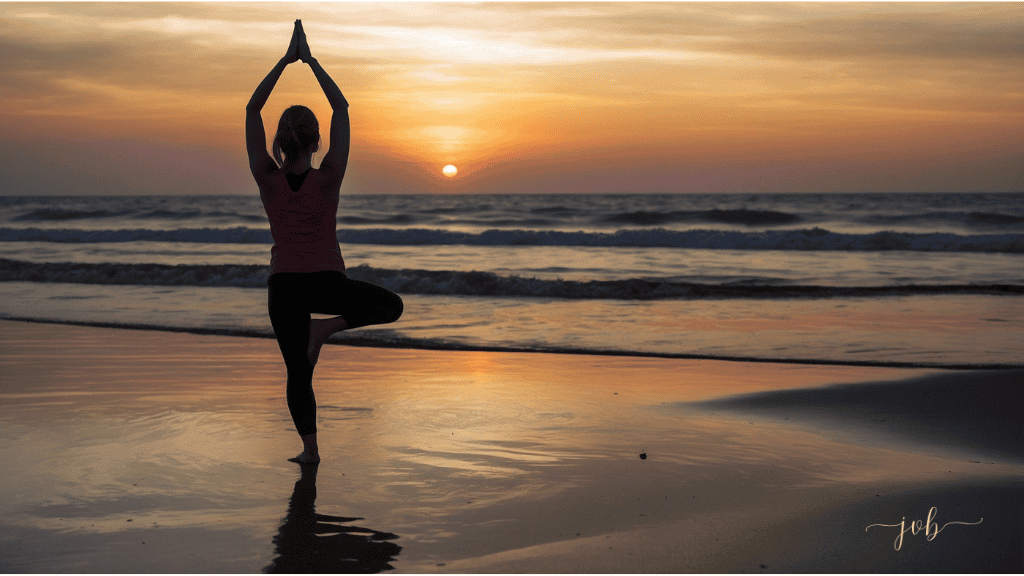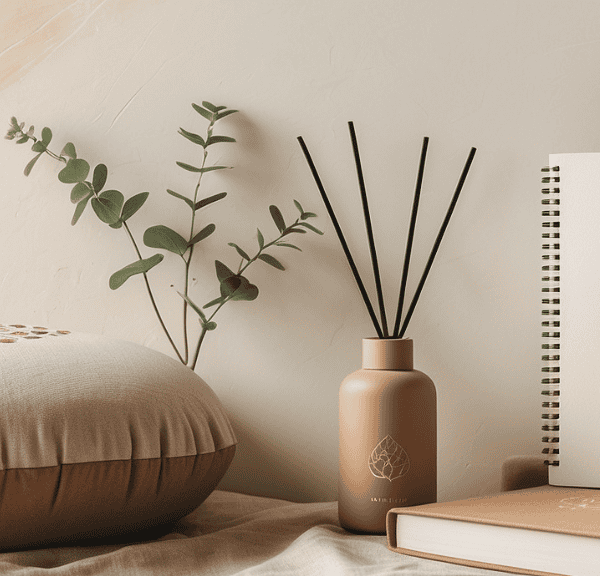
Table of Contents
This post may contain some affiliate links. I only recommend products and services I genuinely believe in. Additionally, some content on this website may have been created with the assistance of AI.
Unlock the Benefits of Mindful Living Every Day

A Mindful Revolution: Upgrade Your Brain, Upgrade Your Life
Are you constantly feeling overwhelmed, stressed, or like you’re on autopilot?
Imagine a life where you experience greater calm, clarity, and focus—a life where you’re fully present in each moment rather than lost in the past or worrying about the future.
Mindfulness offers a path to achieve this. This powerful practice can train your mind to stay present, improving your mental well-being and overall quality of life.
Discover how to unlock the power of mindfulness and transform your daily life. Working with and teaching mindfulness practices has had so many transformative effects due to their ability to rewire the brain in multiple ways, from success in achieving one’s aspirations and goals to living a more balanced and joyful life.
What is Mindfulness?
Mindfulness is the art of being truly present. It means bringing your full attention to this very moment, observing your thoughts, feelings, and the physical sensations in your body without getting swept away by them.
Through my years as a transformational whole self and wellness lifestyle empowerment coach, I’ve seen how this simple yet profound practice can transform lives. When we root ourselves in the present moment, the worries of the past and anxieties about the future tend to melt away more quickly.
Mindfulness invites us to step out of autopilot and into a state of conscious awareness. It’s a skill we can cultivate; like any skill, it gets stronger with practice.

Mindfulness: Your Superpower for Stress and Emotional Well-being
Mindfulness has been a game-changer for my life and many clients I’ve worked with. Its ability to ease anxiety and reduce stress is remarkable. When we practice mindfulness, we learn to observe our thoughts and emotions rather than being hijacked by them. This creates a sense of inner calm, even amidst life’s inevitable storms.
Incorporating healthy habits, such as spending time outdoors and engaging in enjoyable activities, is essential for enhancing our mental and physical well-being as part of a mindfulness practice.
The practice of guided meditation trains our focus like a muscle, enhancing concentration and mental clarity. Beyond mental health, mindfulness can positively impact our physical health, aiding in stress management, managing chronic pain, and supporting a healthy immune response.
Ultimately, mindfulness fosters a greater sense of well-being, helping us feel more present, balanced, and resilient.
Key Takeaways
- Mindfulness is the practice of focusing on the present moment without judgment.
- Mindfulness offers numerous benefits, including stress reduction, improved focus, greater self-awareness, and stronger relationships.
- Simple practices like mindfulness meditation, mindful movement, and mindful eating can easily be integrated into your daily life.
- Mindfulness can be challenging at first – be patient with yourself and remember that it gets easier with practice.
- Even a few minutes of mindfulness daily can lead to transformative changes in your life.

Simple Mindfulness Practice Techniques to Start Your Journey
Start with the Breath: Exploring Mindfulness Meditation
Mindfulness meditation is like an anchor in the busy sea of our minds. When I first began exploring mindfulness, meditation was my starting point. The most basic practice involves finding a quiet spot, settling into a comfortable position, and gently focusing on your breath. Notice the rise and fall of your chest, your breathing, or the feeling of air passing through your nostrils.
Pay attention to any sensations in your body – perhaps a gentle tingling or a sense of warmth. It’s completely natural for your mind to wander; that’s what minds do! When this happens, without judgment, bring your attention back to your breath.
Over time, I became more intentional in my breathwork, exploring different patterns and rhythms. This deepened my meditation practice, helping me become even more aware of the connection between my breath and mental state. Remember, even just a few minutes of meditation throughout your daily life can make a difference.

Mindfulness in Motion: Integrating Awareness into Your Day
Mindfulness isn’t just about sitting still on a cushion. Some of my favorite moments of mindfulness happen in everyday life. Something as simple as eating a meal can become a meditation. By slowing down and focusing on the textures, flavors, and aromas of my food, I savor the experience and develop healthier eating habits in the process.
This mindful approach stands in stark contrast to mindless eating, which is often associated with overeating and weight gain due to eating out of boredom, stress, or distraction.
Even a walk can be transformed into a moving meditation. With each step, I might tune into the feeling of my feet on the ground or the sights and sounds around me. Mindfulness can even enrich my interactions with friends and family. I create deeper and more meaningful connections by truly listening, being present without distractions, and responding from a place of awareness rather than reactivity.

Taming the Distracted Mind
Distractions are everywhere, constantly vying for your attention. Whether it’s a buzzing phone or your mind racing, it can feel impossible to stay focused. But mindfulness can train your focus like a muscle! When you notice your attention wandering, don’t get frustrated. Instead, gently and without judgment, guide it back to whatever you were doing. Acknowledge the distraction, like a curious observer, and then choose to return to the present moment.
Think of each time you bring your focus back as a tiny victory. Over time, your ability to resist those distractions will grow, allowing you to be fully present with whatever task or experience lies before you.

Advanced Mindfulness Practices for Deeper Transformation
From Mindfulness to Loving-Kindness: Cultivating Compassion in Ourselves and Others
Mindfulness has become a cornerstone of my well-being journey, but it’s only part of the story. I discovered the profound power of loving-kindness and compassion as I delved deeper. These aren’t just fleeting feelings but qualities we can cultivate through practice.
Loving-kindness, sometimes called metta, involves extending a sense of goodwill and well-being towards ourselves and others. Compassion, on the other hand, is the recognition of suffering and a genuine desire to alleviate it. In our fast-paced world, it’s easy to lose sight of these qualities. Stress and autopilot mode can make us quick to judge ourselves and others.
By anchoring ourselves in the present moment through mindfulness, we become more aware of our thoughts and feelings. This awareness allows us to choose kindness and compassion instead of reacting automatically.
In daily life, we can cultivate these qualities by starting small. Spend a few moments each day sending silent well wishes to a loved one, a stranger, or even yourself. Notice the shift in your perspective as you focus on wishing others well-being, even amidst challenges. Loving kindness and compassion are gifts that keep on giving, enriching not only our own lives but also the lives of those around us.

Tuning Into the Body: The Power of Body Scan Meditation
Body scan meditation has become one of my go-to meditation practices now, especially when I feel scattered or disconnected. It involves systematically bringing awareness to different parts of the body, and noticing any sensations without judgment.
To begin, find a comfortable position, either lying down or seated. Close your eyes or soften your gaze. Slowly bring your attention to your toes, noticing how they feel against the floor or a blanket. Scan upwards, paying attention to your feet, legs, hips, and torso all the way to the crown of your head. Notice any feelings – warmth, coolness, tightness, tingling, pressure – without trying to change anything; simply be present with whatever arises.
If your wandering mind still wanders, that’s perfectly natural. Gently guide your focus back to your body. This practice can help shift your awareness from the busy world of thoughts and emotions to the direct experience of the body. It’s a beautiful way to connect with yourself and release any tension you may be holding.

Mindful Movement: The Transformative Power of Yoga
Your journey with yoga can be an evolving one. While you might initially focus on the physical postures, you can discover a deeper dimension through mindful movement. Mindful yoga weaves together breathwork, physical postures (asanas), and a focus on the present moment. It’s about finding a sense of flow and synchronizing movement with breath.
When your mind starts to wander, gently return your attention to the sensations in your body or the rise and fall of your breath. This practice is incredibly grounding. Spending time on your yoga mat often brings clarity and focus that extends far beyond the end of your session. Mindful yoga is more than exercise; it’s mindfulness training for both body and mind.
If you’re new to mindful yoga, there are many resources to guide you. Explore online classes, find a local studio offering mindful movement classes, or even begin with simple sun salutations at home while focusing on your breath and body awareness.

Integrating Mindfulness into Your Life
Creating a Consistent Practice
Mindfulness is like any skill – the more you practice, the better you become. That’s why establishing a consistent mindfulness practice is beneficial, even for short durations. Finding a quiet time and place where you’re unlikely to be interrupted is a great place to start. Choose a time that fits your schedule, whether it’s first thing in the morning, on your lunch break, or before bed. The key is to make mindfulness a part of your daily routine, one small step at a time.
Regular practice strengthens your ability to focus on the present moment, enhancing your mindfulness techniques. Over time, you can start integrating mindfulness into activities like walking meditation or mindful eating.
These small, conscious shifts can lead to healthier eating habits and a more profound connection to the present moment, bringing greater feelings of balance and ease into your daily life.

Staying Motivated
Let’s be honest: Staying mindful amidst the hustle and bustle of life can be a challenge. With endless to-do lists and constant distractions, it’s easy to lose focus on the present moment. That’s why I find setting small “mindfulness reminders” helpful throughout the day.
A simple alarm on your phone, a sticky note on your desk, or even a few mindful breaths while waiting in line can all serve as little anchors. If you crave a more structured approach, joining a meditation group is a fantastic way to find support and stay motivated on your mindfulness journey.
Consistency is key – the more we integrate these mini-mindfulness moments into our daily lives and routines, the easier it becomes to cultivate a sense of presence in the midst of a busy life.

Overcoming Challenges
Mindfulness is not a destination but a journey. And like any journey, there may be obstacles along the way. You may experience your mind racing during meditation or getting lost in worries while walking. Or perhaps you’re attempting to eat mindfully and suddenly realize you’ve finished your meal without even savoring it. It’s important to remember that it’s normal for the mind to wander – that’s just what minds do!
When this happens, try to approach yourself with patience and kindness. Instead of getting discouraged, gently acknowledge the distraction with a soft “thinking” or “worrying” and redirect your attention back to the present moment. Remember, every time you pay attention and return to the anchor of your breath, your body sensations, or the task at hand; you’re strengthening your mindfulness muscle and building resilience.

The Transformative Power of Mindfulness
Improved Relationships
Mindfulness has had a profound impact on my relationships with those closest to me. When I am truly present, I listen more attentively, react less impulsively, and extend greater compassion. Instead of being lost in my own thoughts or scrolling through my phone while someone is speaking, I tune in fully.
This shift has been transformative. I notice subtle nuances in tone or expression, allowing me to connect on a deeper level. Mindfulness helps me cultivate empathy, reminding me that everyone has their own struggles and stories that go on behind the scenes. By being truly present in my interactions, I create space for more meaningful and fulfilling relationships.
Imagine experiencing this deeper level of connection with your friends and family. As you practice mindfulness, you might discover a greater sense of understanding, patience, and appreciation for those you love. Conflicts may resolve more smoothly, and your interactions might overflow with greater joy and shared presence. Finding joy in simple moments can be life-changing.

Finding Joy in Simple Moments
One of my favorite things about mindfulness is how it helps you savor the simple joys that often go unnoticed in the hectic pace of life. With presence comes an ability to find gratitude for the warmth of your morning coffee, the feeling of the sun on your skin, or the laughter of a loved one.
Instead of rushing through your days on autopilot, try to tune into the beauty of seemingly ordinary moments. Mindfulness allows you to see the extraordinary within the everyday. This shift in perspective has brought a deeper sense of contentment and appreciation into my life, and I can for you, too.
Try noticing the small things that bring a smile to your face: the vibrant colors of flowers blooming, the sound of birdsong, and the feel of a soft sweater on a chilly day. Take a moment to be fully present with these simple pleasures, allowing yourself to experience them deeply. You might be amazed at how these moments of joy can transform your outlook.

Greater Self-Awareness
Mindfulness has been like shining a light into the inner workings of my own mind. Through practicing mindfulness, I’ve gained a deeper understanding of my thoughts, emotions, and habitual reactions. Instead of being swept away by my feelings, I’m learning to observe them with a sense of curiosity and space. This awareness has been empowering. For example, if I notice irritability bubbling up, I can pause and investigate the root cause rather than lashing out impulsively.
Mindfulness empowers you to respond to life events from a place of wisdom and clarity instead of simply reacting on autopilot. I’ve seen this transformation in my clients as well. One client, for example, realized through mindfulness that her anxiety was often triggered by a fear of failure. This insight allowed her to challenge those thoughts and approach situations with a greater sense of calm.

A Mindful Life: Embracing Transformation
Mindfulness is a powerful tool for unlocking a life of greater well-being. By cultivating a regular mindfulness practice, you open yourself to a world of transformative benefits. As you learn to anchor yourself in the present moment, stress melts away, leaving room for a deeper sense of inner peace. Mindfulness strengthens your self-awareness, empowering you to understand your thoughts, emotions, and reactions, ultimately leading to wiser choices. Relationships blossom as you become a more present and empathetic listener.
Your mindfulness journey doesn’t have to start with a grand gesture. Even a few minutes of mindful attention daily can ripple outwards, positively impacting every aspect of your life. Today, why not take one simple mindful action? It could be focusing entirely on your breath for a minute, taking a mindful walk, or savoring the first few bites of your meal without distractions. Let this small action be the first step toward a more conscious, fulfilling, and joyful life.
This post may contain some affiliate links. I only recommend products and services I genuinely believe in. Additionally, some content on this website may have been created with the assistance of AI.
Frequently Asked Questions
Q: I’m new to mindfulness. Where do I start?
A: Start small! Try a 5-minute guided mindfulness meditation focused on the breath. Excellent apps and online resources for guided practice are available. You can also integrate simple mindfulness practices, like mindful walking or eating, into your daily routine.
Q: My mind is always racing. How can I possibly meditate?
A: It’s completely normal for the mind to wander – that’s its nature! Instead of fighting your thoughts, observe them and gently guide your attention back to your breath or body sensations. Be patient and kind to yourself.
Q: How long do I need to practice to see benefits?
A: Even a few minutes of mindful practice daily can make a difference. Consistency is key to cultivating mindfulness’s transformative benefits over time.
Q: Is mindfulness a religious practice?
A: While mindfulness is rooted in Buddhist traditions, it does not require specific religious beliefs. Mindfulness is a secular practice focused on cultivating awareness and presence.
Q: Can mindfulness help with specific issues like anxiety or stress?
A: Yes! Extensive research shows that mindfulness can be a powerful tool for managing anxiety, stress reduction, and improving overall mental health.
Q: Can mindful eating be beneficial for individuals with eating disorders?
A: Mindful eating can be helpful for individuals experiencing eating disorders, as it encourages a healthier relationship with food by focusing on the sensations and enjoyment of eating. It can be particularly effective in addressing behaviors such as emotional eating and binge eating, which can contribute to weight gain and obesity. However, it’s important to emphasize that while mindful eating can support recovery, it is not a standalone treatment for severe clinical conditions like eating disorders, especially during challenging times. Individuals with eating disorders should seek professional treatment and consider mindful eating as a complementary practice.
About The Author
Jahlila is a Transformational Whole Self and Wellness Lifestyle Empowerment Coach, a devoted mother, passionate writer, and a fervent advocate for holistic wellness. She is the creator of The Tri-Sync Method, a comprehensive coaching program designed to help women establish a personalized wellness and self-care lifestyle for enduring total health wellness.
Her journey has transitioned from focusing solely on health and fitness to embracing a broader mission: empowering women through holistic approaches that unite body, mind, and spirit. Jahlila is dedicated to teaching, coaching, writing, and speaking about how wellness intersects with a joyful, balanced life. Her mission is to motivate women to prioritize and achieve their wellness goals, fostering a deep connection between a vibrant lifestyle and true happiness. Ready to reclaim your vitality, achieve mental clarity, and embrace your wellness journey? Explore more at The Tri-Sync Method.Com
Don’t wait another day to start living your healthiest, happiest life. Schedule a Free Discovery Consultation with Jahlila today to explore how The Tri-Sync Method can transform your life. For additional questions or personalized guidance, please visit our Contact Page.




Leave a Reply